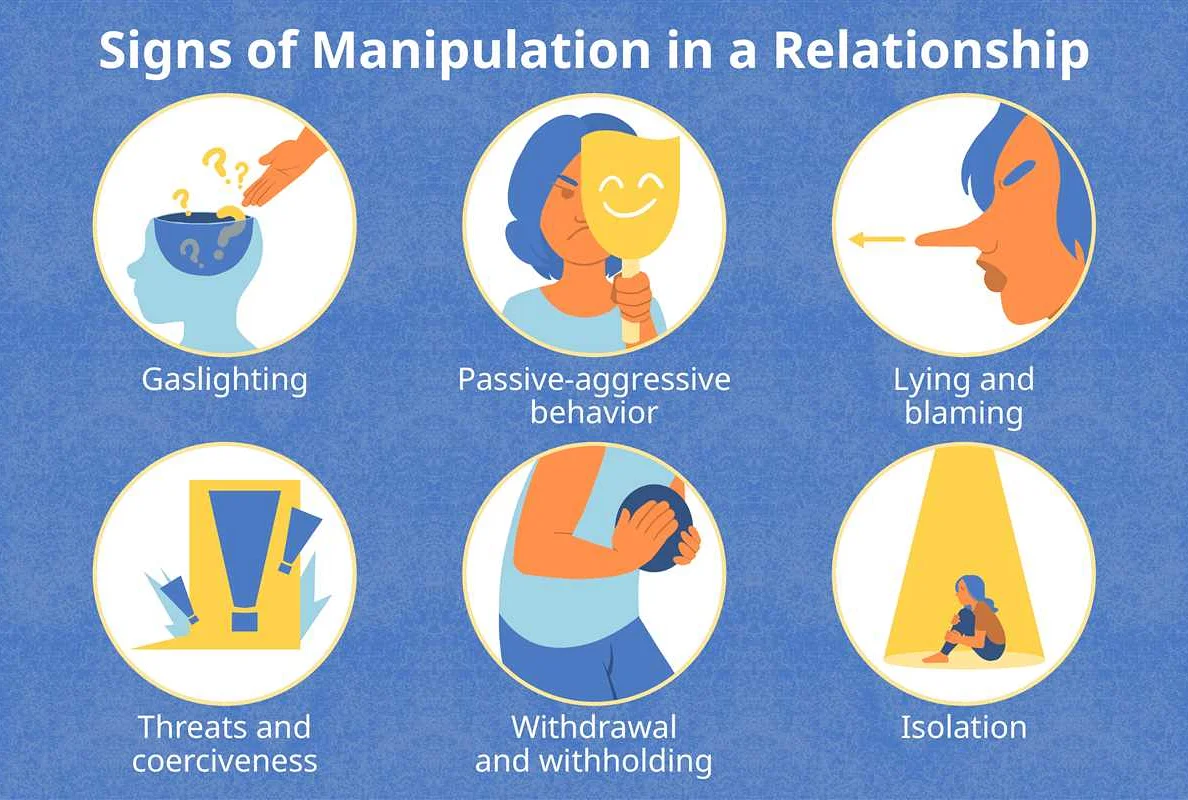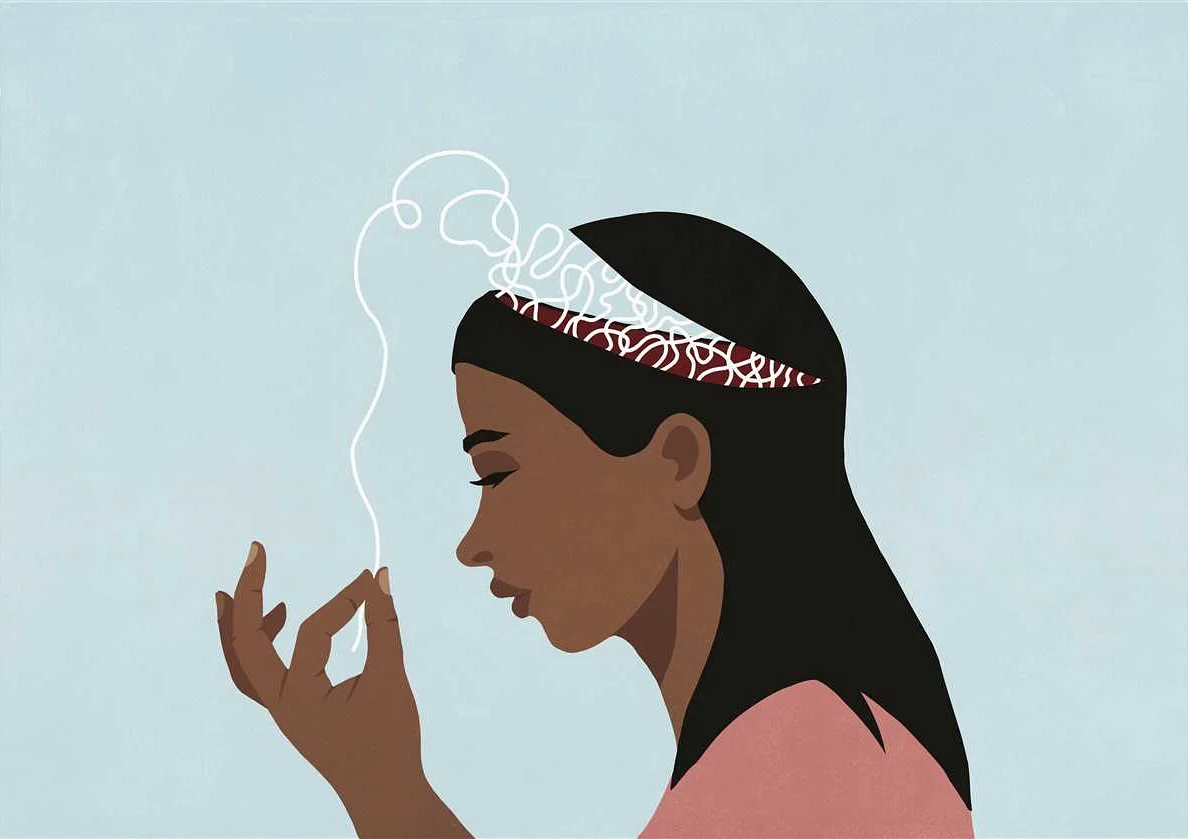6 Signs That You Are Controlled by Guilt and Self-Dislike
Содержимое
Are you constantly weighed down by guilt and self-dislike? Check these 6 signs to see if you are being controlled by negative emotions and discover strategies to break free from their grasp.
Do you ever find yourself constantly feeling guilty or disliking yourself? If so, you’re not alone. Many people struggle with these negative emotions, but it’s important to recognize when they’re controlling your life. Guilt and self-dislike can be incredibly detrimental to your mental health and overall well-being, so it’s essential to address them head-on.
One sign that you’re controlled by guilt and self-dislike is constantly apologizing, even for things that aren’t your fault. You may find yourself saying “sorry” for the smallest things, as if you’re constantly in the wrong. This behavior stems from a deep-seated belief that you’re not good enough, and it’s important to challenge this negative self-perception.
Another sign is constantly seeking validation from others. If you’re constantly seeking approval and reassurance from others, it may be a sign that you don’t trust your own judgment or value your own opinion. This can lead to a cycle of seeking validation that is never fully satisfying, as you’re constantly looking for external sources to validate your worth.
Furthermore, if you find it difficult to accept compliments or praise, it may be a sign that you’re controlled by guilt and self-dislike. You may downplay your achievements or brush off compliments, believing that you don’t deserve them. Learning to accept and appreciate positive feedback is crucial for building a healthier self-image.
In addition, constantly comparing yourself to others is a common sign of being controlled by guilt and self-dislike. You may find yourself feeling envious or resentful of others’ success, as it highlights your own perceived failures. It’s important to remember that everyone’s journey is unique, and comparing yourself to others is a futile exercise that only serves to reinforce negative self-perceptions.
Lastly, if you struggle with setting boundaries or saying no, it may be a sign that you’re controlled by guilt and self-dislike. You may feel obligated to please others at the expense of your own well-being, fearing that asserting yourself will result in rejection or disapproval. Learning to set healthy boundaries and prioritize your own needs is essential for breaking free from the grip of guilt and self-dislike.
Recognizing these signs is the first step towards breaking free from the control of guilt and self-dislike. It’s important to seek support from loved ones or professional help if needed, as overcoming these negative emotions can be a challenging process. Remember, you deserve to live a life free from guilt and self-dislike, and with time and effort, you can achieve it!
Obsessive Apologizing
One common sign that you’re controlled by guilt and self-dislike is when you find yourself obsessively apologizing. You apologize for things that aren’t your fault, and you constantly feel the need to seek forgiveness even for minor mistakes.
This behavior is often rooted in low self-esteem and a fear of disappointing others. You may believe that you are responsible for other people’s happiness, and any perceived failure on your part is met with excessive apologies.
Obsessive apologizing is a form of self-sabotage and can prevent you from asserting yourself and setting healthy boundaries. It can also lead to a cycle of guilt, where you continuously apologize without addressing the underlying issues or taking steps to improve.
If you find yourself constantly saying sorry and feeling guilty for things beyond your control, it’s important to challenge these thought patterns and work on building self-acceptance and self-compassion. Remember that making mistakes is a normal part of being human, and it’s essential to prioritize your own well-being and happiness.
Instead of automatically apologizing, try to focus on finding solutions and taking responsibility for your actions when necessary. Practice self-care and surround yourself with supportive people who encourage you to embrace your strengths and learn from your mistakes.
Breaking free from the cycle of obsessive apologizing will require patience and self-reflection, but it’s an important step towards cultivating a healthier relationship with yourself and others. Remember, you deserve to be treated with kindness and understanding, just like everyone else.
Constant Self-Criticism

One of the signs that you may be controlled by guilt and self-dislike is constant self-criticism. This means that you are always putting yourself down, finding faults and flaws in everything you do. You have an internal voice that is constantly berating you and telling you that you are not good enough.
Constant self-criticism can be exhausting and debilitating. It can lead to feelings of low self-worth, anxiety, and depression. It can also sabotage your relationships and prevent you from reaching your full potential.
If you find yourself engaging in constant self-criticism, it is important to recognize that this behavior is not healthy or productive. Instead of focusing on your perceived shortcomings, try to practice self-compassion and self-acceptance. Remind yourself that you are human and that making mistakes is a natural part of life.
Challenge your negative self-talk and replace it with positive and encouraging thoughts. Surround yourself with supportive and uplifting people who can help boost your self-esteem. Seek professional help if necessary, such as therapy or counseling, to work through your feelings of guilt and self-dislike.
Remember, constant self-criticism is a learned behavior that can be unlearned. With practice and patience, you can break free from the grip of guilt and self-dislike and learn to love and accept yourself for who you are.
Difficulty Setting Boundaries

One of the signs that you’re controlled by guilt and self-dislike is difficulty setting boundaries. When you constantly put others’ needs and desires before your own, it can be a clear indication that you struggle with setting healthy boundaries.
You may feel guilty when you say no to others or prioritize your own well-being. This guilt stems from a fear of disappointing others or being seen as selfish. As a result, you may find it challenging to establish limits in your personal and professional relationships.
Without clear boundaries, you may find yourself overextending yourself, constantly saying yes to requests or favors, even when it’s not in your best interest. This can lead to feelings of resentment, exhaustion, and a loss of personal identity.
Additionally, difficulty setting boundaries can result in a lack of self-care. When you prioritize others over yourself, you may neglect your own needs, leading to physical and emotional burnout. It’s important to recognize that setting boundaries is not selfish, but rather a crucial aspect of self-care and self-respect.
To overcome this difficulty, it’s important to practice assertiveness and learn to say no when necessary. It’s essential to communicate your needs clearly and establish limits that protect your well-being. Remember, setting boundaries is not a sign of weakness or selfishness, but rather a sign of self-love and self-respect.
- Recognize your own needs and prioritize your well-being
- Practice saying no without feeling guilty
- Communicate your boundaries clearly and assertively
- Take time for self-care and prioritize your own needs
- Seek support from trusted friends or a therapist
- Remember that setting boundaries is a sign of self-love and self-respect
By actively working on setting boundaries, you can break free from the control of guilt and self-dislike and create healthier relationships with yourself and others.
Fear of Disappointing Others
One of the signs that you may be controlled by guilt and self-dislike is a constant fear of disappointing others. This fear can stem from a deep-seated belief that you are not worthy of love and acceptance, and that you are inherently flawed. As a result, you may go to great lengths to please others, constantly seeking validation and approval.
You may find yourself constantly second-guessing your decisions and actions, worrying about how others will react or perceive you. This fear of disappointing others can lead to a perpetual cycle of self-doubt and anxiety, as you strive to meet unrealistic expectations and avoid any form of criticism or disapproval.
Additionally, this fear can also manifest as a reluctance to set boundaries and assert your own needs and desires. You may prioritize the needs of others above your own, sacrificing your own well-being in the process. This can further reinforce feelings of guilt and self-dislike, as you neglect your own happiness and fulfillment.
To break free from this fear, it is important to recognize that you are not responsible for the happiness of others. It is impossible to please everyone, and setting boundaries and prioritizing your own well-being is essential for your personal growth and happiness.
By practicing self-compassion and self-acceptance, you can begin to challenge the belief that you are inherently flawed and unworthy. Surrounding yourself with supportive and understanding individuals who appreciate you for who you are can also help to alleviate the fear of disappointing others.
Remember, it is okay to make mistakes and disappoint others from time to time. It is a natural part of being human. Embrace your imperfections and learn from them, and focus on cultivating a sense of self-worth and love that is independent of external validation.
Feeling Responsible for Others’ Emotions
One sign that you may be controlled by guilt and self-dislike is feeling responsible for others’ emotions. You constantly worry about how your actions or words may impact the people around you, and you believe that it is your duty to ensure their happiness and well-being.
This mindset often stems from a deep-seated fear of rejection or abandonment. You may believe that if you don’t meet the emotional needs of others, they will no longer love or accept you. This fear drives you to prioritize others’ emotions over your own, neglecting your own needs and desires in the process.
Feeling responsible for others’ emotions can be exhausting and overwhelming. It can lead to constantly seeking validation and approval from others, as you rely on their positive reactions to feel a sense of worth and belonging. This dependency on external validation perpetuates a cycle of guilt and self-dislike, as you never feel secure in your own emotions and abilities.
It’s important to understand that you are not solely responsible for others’ emotions. Each individual is responsible for managing their own feelings and reactions. While it’s natural to care about the well-being of loved ones, it should not come at the cost of neglecting your own emotional needs.
Learning to set boundaries, communicate assertively, and prioritize self-care are essential steps in breaking free from the cycle of guilt and self-dislike. Recognize that your worth is not dependent on others’ emotions, and focus on cultivating a healthy relationship with yourself.